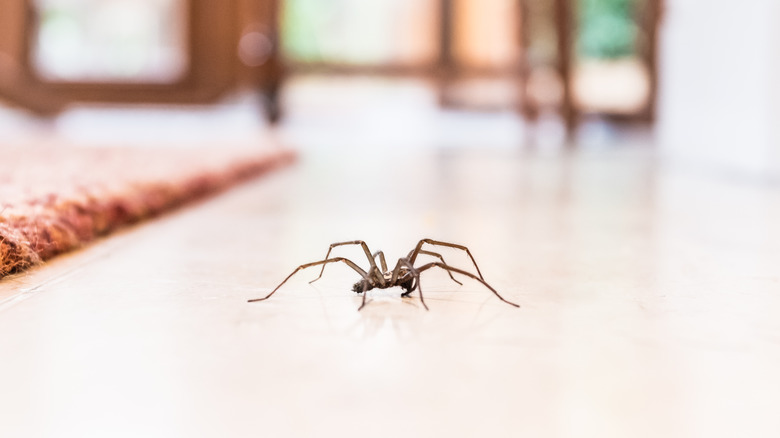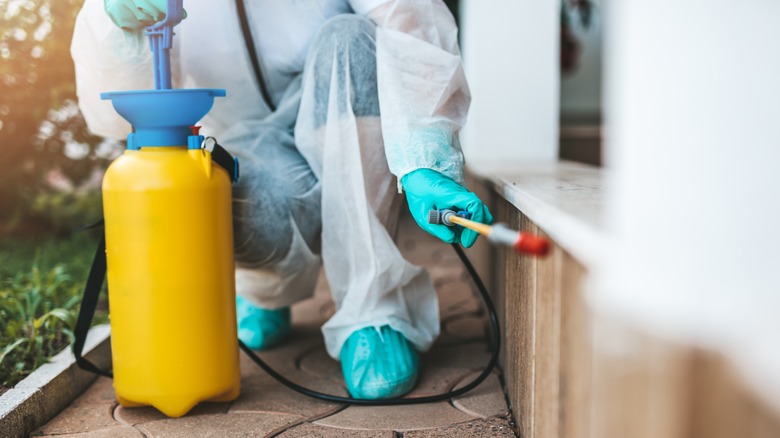Your Next Step To Take When Natural Spider Repellents Stop Working
We may receive a commission on purchases made from links.
For the safety of your family and pets, you have likely tried natural remedies to help control pests around your home. Fragrant spices like cinnamon can help keep your home spider-free, while strong scents such as eucalyptus, tea tree, lavender, and peppermint are some common essential oils used for natural spider-repellents. Still, natural remedies may not be 100% effective against all spiders, and they may become even more futile if you already have an active spider infestation in your home. If you're still noticing spiders despite trying natural remedies, you may consider commercial pesticides.
Sold online and in home improvement stores, commercial spider repelling sprays contain chemicals that may kill spiders currently in your home, while also helping to create a barrier on the exterior of your property to keep future spiders from trying to come inside. When shopping for such products, look for active ingredients such as bifenthrin, cyfluthrin, lambda cyhalothrin, and deltamethrin. Some examples are Miss Muffet's Revenge or Ortho Home Defense Insect Killer, which both contain bifenthrin. These products also purportedly last for up to 12 months per application, but it's important to follow all instructions carefully for best results.
Other ways you can control spiders
Before making the jump from natural remedies to chemical-based products to combat spiders, you might also consider other methods to help control this common problem. First, it can be helpful to make your home a less desirable space for spiders to hang out in. Spiders are most likely to be lurking in sneaky places in your home, such as dark corners. You can help remove potential nesting and feeding grounds for spiders by decluttering areas of your home that are used less frequently, such as basements, garages, and utility closets. Removing potential hiding spots in your yard, such as leaf or log piles, can also help deter spiders from your property. Also, by controlling other pests, you can reduce a spider's reliance on your home as their source of food. Another important strategy is to make sure the exterior of your home doesn't have any cracks or openings that spiders may access.
Collectively, making your home less appealing to spiders in conjunction with strategic insecticide applications can help prevent future spider problems. Once you see signs of a true infestation, however, it's time to call a professional exterminator for spiders. This is especially the case if you have problems with venomous spiders, such as black widow and brown recluse spiders, as these can be dangerous to handle on your own. While professional pest control may be considered a last resort, an expert can help you seal points of entry into your home, while also getting rid of possible nests.

